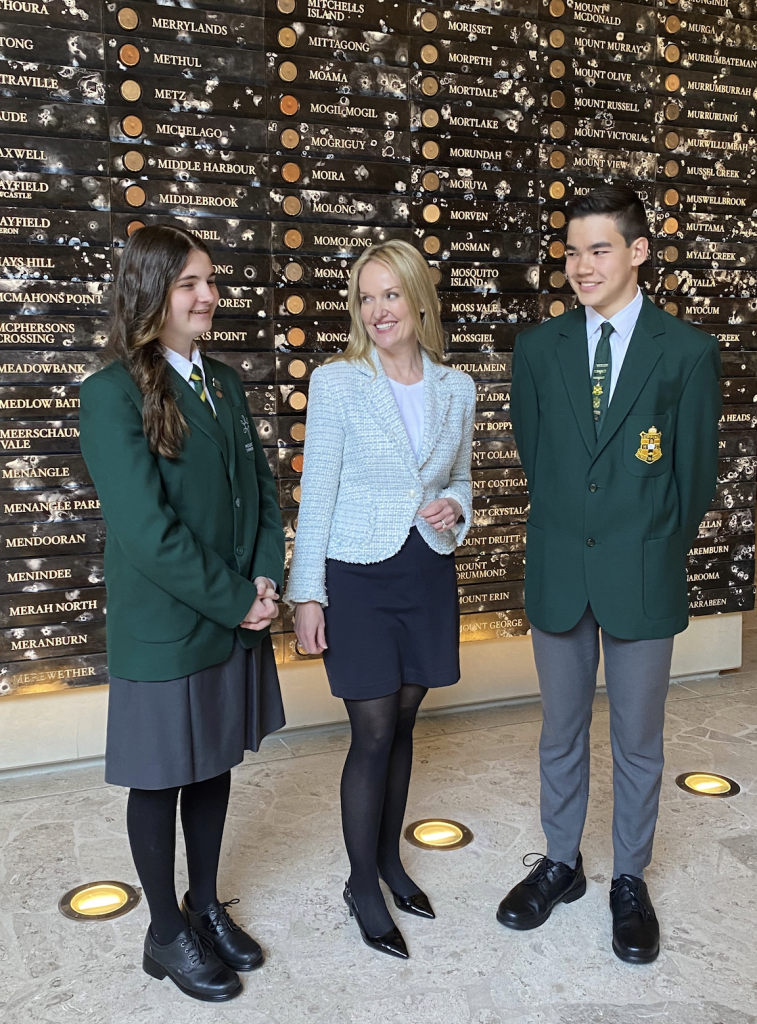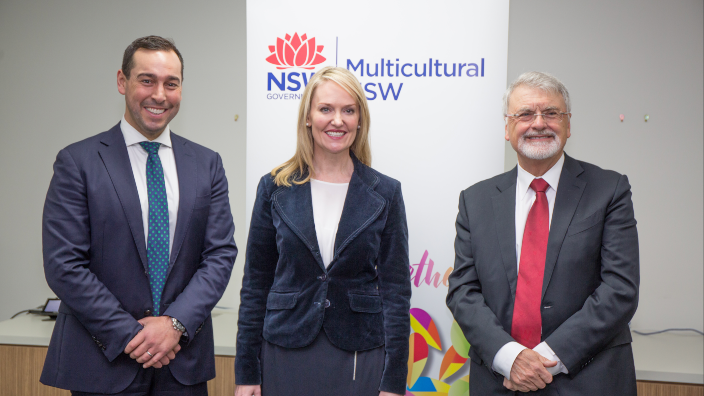Nearly two months ago after a cabinet reshuffle, Upper House MLC, Natalie Ward, was called by NSW Premier, Gladys Berejiklian, to serve as Minister for Sport, Multiculturalism, Seniors and Veterans taking over from acting Minister Geoff Lee.
As Sydney is bracing for a lockdown that could stretch for weeks and the state is facing the biggest challenge since the pandemic started, the newly appointed Minister for Multiculturalism spoke to The Greek Herald and thanked the Greek community for their continued cooperation with COVID-19 restrictions in NSW.
TGH: NSW is currently going through turbulent times. What is your message to the state’s multicultural communities?
It is an honour to be the NSW Minister for Multiculturalism and to serve the diverse communities of NSW. I want to thank all of our diverse community leaders for their role in keeping NSW safe over the past 18 months.
These have been, and continue to be, difficult times, but we have also seen the best of human nature.
We have seen people come together across cultural, faith and linguistic backgrounds to support those most vulnerable in our community, in particular our newly arrived migrants, asylum seekers and refugees.
We have witnessed the incredible generosity of so many volunteer-run multicultural community organisations, providing direct emergency relief and support to members of the community who need it most.
Although we are still navigating challenging times, we know that as a community we are stronger and more resilient when we unite and work together.
TGH: The NSW Budget was handed down nearly a month ago and some parties have criticised it for the lack of specific support to multicultural communities. What is your opinion on this?
The NSW Government continues to invest in support of multicultural communities through our agency Multicultural NSW.
In the 2021-22 NSW Budget we announced $8.5 million over three years to continue important support programs for refugee, new and emerging communities.
Additionally, the NSW Government announced $1 million to revolutionise digital-based interpreting services and improve accessibility in remote areas.
Last financial year, the NSW Government invested $20 million through Study NSW for international students in response to severe financial and existential hardship during the pandemic. Further, a total of $10 million was invested for new and emerging communities with specialised supports for vulnerable temporary visa holders, and for the continuation of refugee programs and emergency relief for asylum seekers.
Last year, Multicultural NSW provided $1.1 million to support more than 220 grassroots multicultural community projects responding to COVID-19. These are some of the initiatives we are undertaking.
TGH: In your inaugural speech, four years ago, you mentioned that your “work as a lawyer exposed you to the reality of the hardships faced by people from many different cultural and social backgrounds.” What are the hardships you were referring to and how are you planning to change things for the better?
Financial, mental health, family and social hardships cut across all facets of our community, regardless of your background.
However, we know newly arrived migrants can face special challenges. These challenges come with settling into a new country, adjusting to a new language, financial hardship and in some instances, managing trauma from war and political conflict overseas.
We have seen COVID-19 exacerbate existing hardships for many members of our community.
The NSW Government will continue to listen to the needs of our diverse communities to understand how we can best support them.

TGH: During the pandemic ethnic newspapers have been the lifeline for first generation migrants as they connect them to their respective communities and keep them informed and engaged with the news in Australia. Do you see a role for community papers in the future?
I commend the vital role of multicultural media outlets in our society. Multicultural media outlets are sources of credible news and information, and represent hubs of connection for our diverse communities.
This has been especially apparent during the pandemic. Multicultural media outlets have been critical in sharing vital public health information with their audiences and communities.
These audiences often represent demographics more vulnerable to the effects of the virus and who speak languages other than English, which has made communicating with these audiences through multicultural media even more important.
Last year, the NSW Government awarded multicultural media grants of more than $250,000 to recognise the vital work of multicultural media outlets and recognise the strain they have been under during the pandemic.
TGH: Apart from your role as a Minister you are also a mother of two, a wife and an advocate for women in sports and in politics. Why would you encourage more women to enter the political arena?
I believe diverse representation is very important in all aspects of political, economic, social and cultural life, as this reflects the make-up of society.
In order to truly understand the challenges, experiences and perspectives of the people we serve, we need to have representation from all voices.
When diverse groups participate and are engaged in discussions and decision-making in any sector, it ensures greater responsiveness to community needs and better accountability to all groups. It’s also required to inspire younger generations with role models they can relate to and see themselves in. Ultimately, diverse representation helps to create inclusive, well-functioning societies.
TGH: Is the anything you would like to add?
I would like to thank the Greek Herald team for your important contribution to our Greek Australian community in NSW.
Now more than ever, we need to continue hearing from diverse voices in the Australian media. With almost 100 years of history, the Greek Herald continues to make a rich contribution to our community.
I also want to thank the entire readership of the Greek Herald and the wider Australian – Greek community for their continued cooperation with COVID-19 restrictions in NSW.
With the support of all members of our community, we will be able to continue navigating our response to the pandemic in the best interests of all people of NSW.

